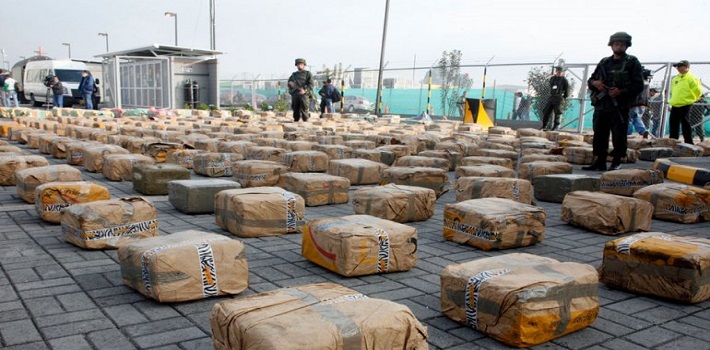
EspañolIn the 1980s, the Colombian government declared a war on drug trafficking, not just because of the wave of violence it generated throughout the country, but also based on international pressure, particularly from the United States.
However, the global war on drugs, formalized with the signing of the United Nation’s Single Convention on Narcotic Drugs, has not produced its intended results, and in recent years, some countries have made the decision to regulate or ease prohibitions on marijuana and cocaine.
“We’ve spent billions of dollars on a war with significant but insufficient results, billions that should have been invested in hospitals, schools, homes for the poor, and job creation,” President Juan Manuel Santos said during the International Drug Enforcement Conference in Cartagena.
With his speech, President Santos hinted at the fact that Colombia may be willing to follow the drug-decriminalization trend.
In fact, this debate is already taking place in Congress. In November 2014, Juan Manuel Galán introduced a bill that aims to regulate marijuana for therapeutic use. If passed, it would mean a drastic change in drug policy that up to now has sought the eradication of the illegal crop and those who traffic in it.
The bill has survived the first of four rounds of debate, and Congress is set to renew the discussion in July.
Senator Roy Barreras of the Social Party of National Unity has said he will ask the Senate to expand the decriminalization of marijuana beyond just therapeutic exemptions to include recreational use.
Barreras argues that the full decriminalization is needed in order to end the narco-trafficking business that has “done so much damage already,” since prohibition has reduced neither supply nor demand.
“It’s a complex issue,” says the senator, “because parents feel anxious and worry, and they think that their children are going to become marijuana addicts overnight. But I explain to them, with total sincerity, that their children are not alcoholics even though alcohol is legal right now.”
On the other hand, Francisco Thoumi, research coordinator for the Global Programme against Money Laundering and the UN World Drug Report, says decriminalization would inevitably lead to an increase in drug use.
“The more free the market becomes, the more it will resemble the situation with tobacco and alcohol, in which the private sector simply uses marketing strategies to increase its sales,” he says.
It’s Not the Same In Colombia
Thoumi explains that the global trend in relaxing drug policy has generally been motivated by a need to reduce consumption and limit the number of addicts. This is not the case in Colombia, he says, because the county’s real problem is the production and exportation of drugs, especially cocaine.
“Colombia’s problem arose because it began to supply the cocaine market abroad. The domestic market for cocaine is not significant, nor is drug trafficking in general. For 30 years, the export market has been the important one.”
The expert warns that the Colombian government could legalize all drug use if it really wanted, but it would not be addressing the root of the problem. According to Thoumi, this move would generate instability internationally, because it would violate the various conventions and treaties the country has signed.
He argues that international drug trafficking will remain forbidden and combated, because the drug problem throughout most of the world is primarily one of consumption and addiction. Thoumi adds that with the exception of marijuana, there is no movement or support to legalize the production of illegal drugs.
He says his research shows that most narco-trafficking that takes place throughout the world is not linked to the sort of violence that occurs in Colombia. “That’s why the world looks at us and says, ‘Gentlemen, you have a domestic problem that you must resolve on your own, and you have not been able to do so.'”
“In Colombia, when we say that violence is generated by drug trafficking, implicitly what we are saying is that it is natural for Colombians to kill each other when a large amount of illegal money is available … Unfortunately, what we need to ask ourselves is something else. It is not why Colombia provides the dead, but why does it provide the murderers, which is much more serious.”
The researcher says this has led him to conclude that the drug problem is merely a symptom of a host of unresolved social problems. “The problem with [illegal] crops is, for example, related to failed agricultural policies,” he says.
However, Thoumi believes that current drug policy “has been a disaster,” and is convinced that the drug problem cannot be solved without major social reform. “Drugs are a sign that we have not solved the big problems of our society,” he concludes.
 Versión Español
Versión Español












